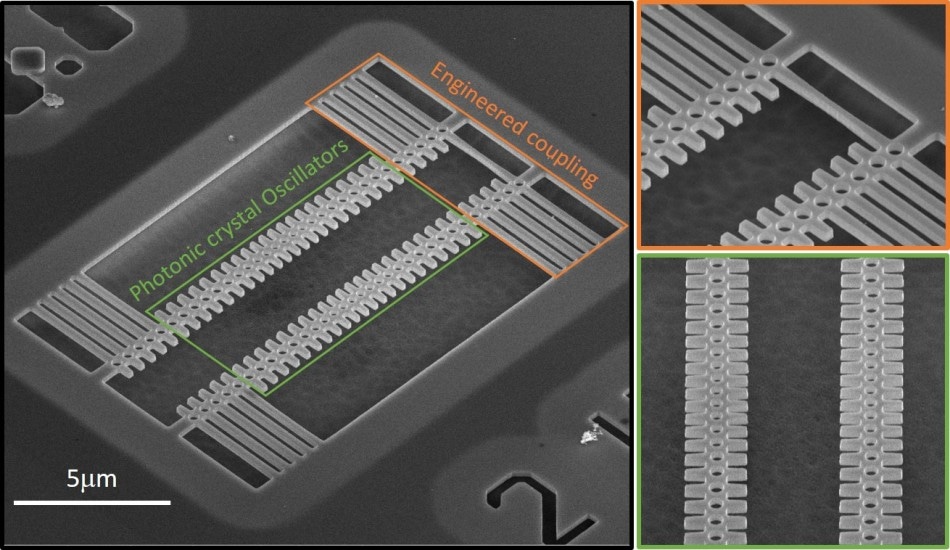Jul 3 2019
In 1665, Lord Christiaan Huygens discovered that two pendulum clocks, placed in the same wooden structure, oscillated spontaneously and impeccably in line but in opposite directions: the clocks oscillated in anti-phase.
 Nano oscillators. (Image credit: IN2UB)
Nano oscillators. (Image credit: IN2UB)
Since that time, synchronization of coupled oscillators in nature has been described at more than a few scales: from bacteria to heart cells, neural networks as well as in binary star systems — spontaneously synchronized.
Mechanical oscillators are common in these systems. In the nanoscale, the test is to synchronize these. In these lines, an article published in the journal Physical Review Letters — by a team of scientists from the Institute of Nanoscience and Nanotechnology of the University of Barcelona (IN2UB) along with ICN2 scientists illustrated a type of mechanic oscillator at a nanoscale.
Through a chain of experiments, researchers could synchronize two crystal optomechanical oscillators mechanically coupled, positioned in the same silicon platform, and triggered through independent optical impulses. These nanometric oscillators come in the size of 15 µm per 500 nm.
While a mechanical pendulum receives impulses from the clock to maintain its movement, the optomechanical pendulums make use of the pressure from radiation; however, the interaction of oscillators is identical in both experiments. The research also reveals that the collective dynamics can be regulated acting externally on just one oscillator.
Results show a good base for the creation of reconfigurable networks of optomechanical oscillators thanks to these collective dynamics that are dominated by a weak mechanical coupling. This could have applications in photonics, for instance, for pattern recognition tasks or a more complex cognitive process.
Daniel Navarro Urrios, Study Lead, IN2UB